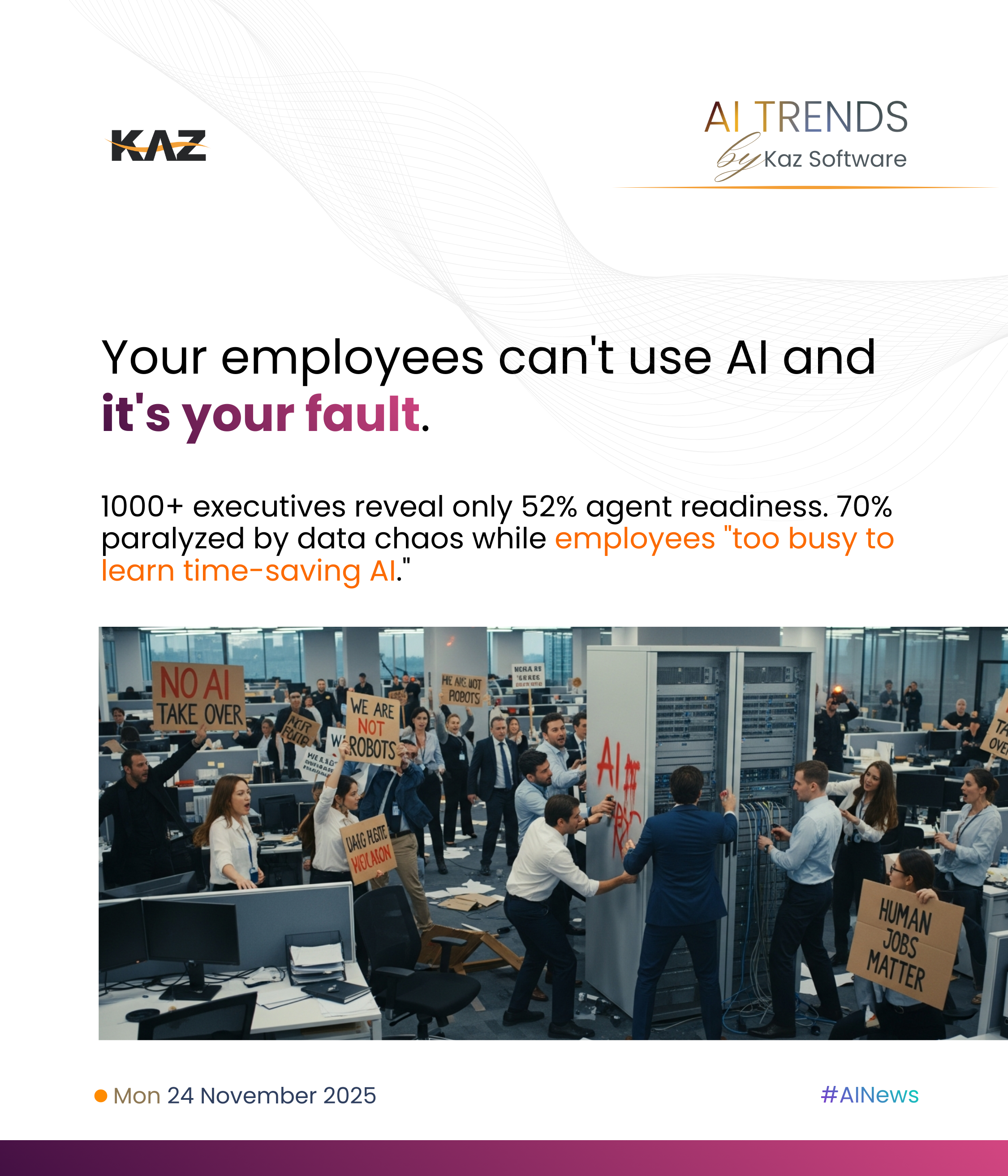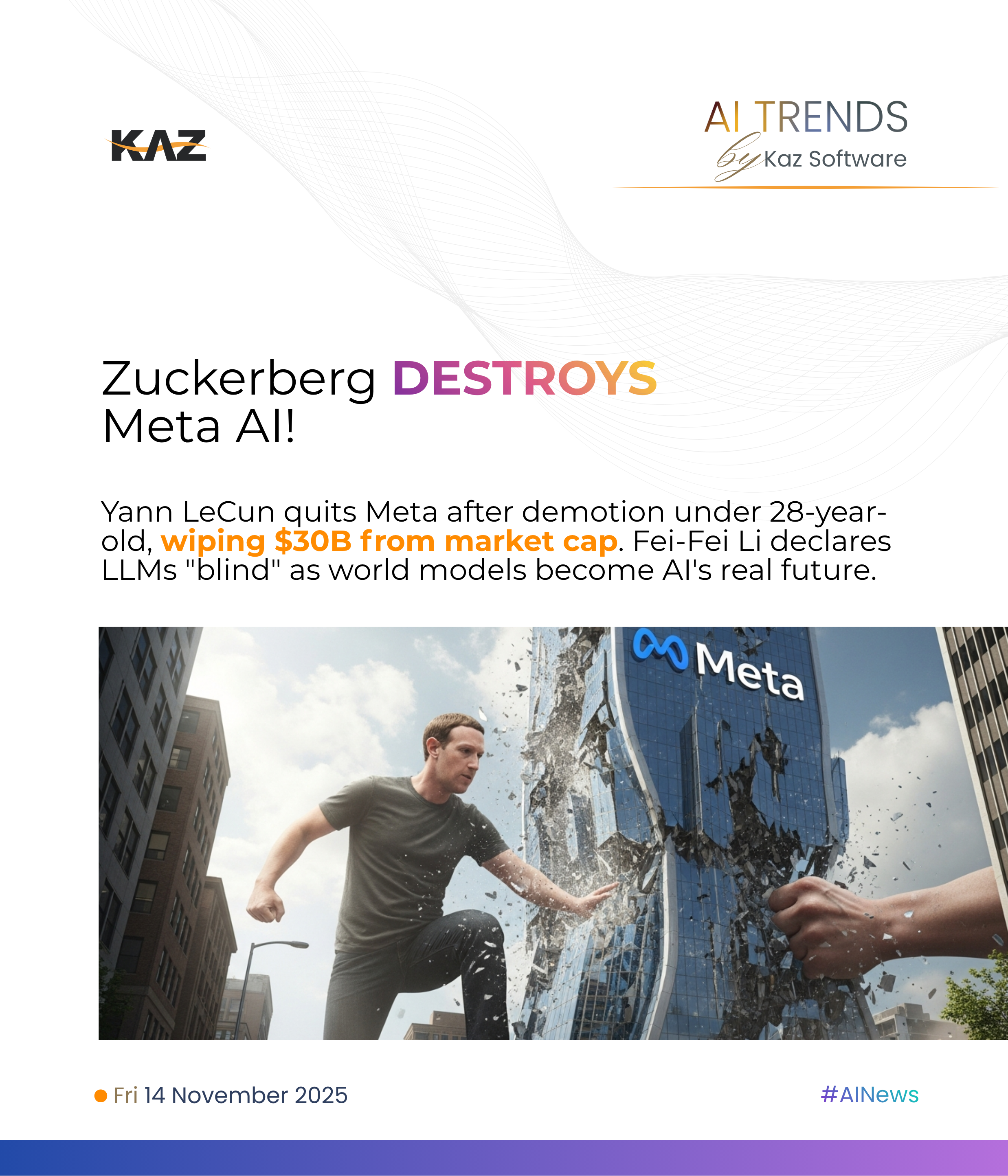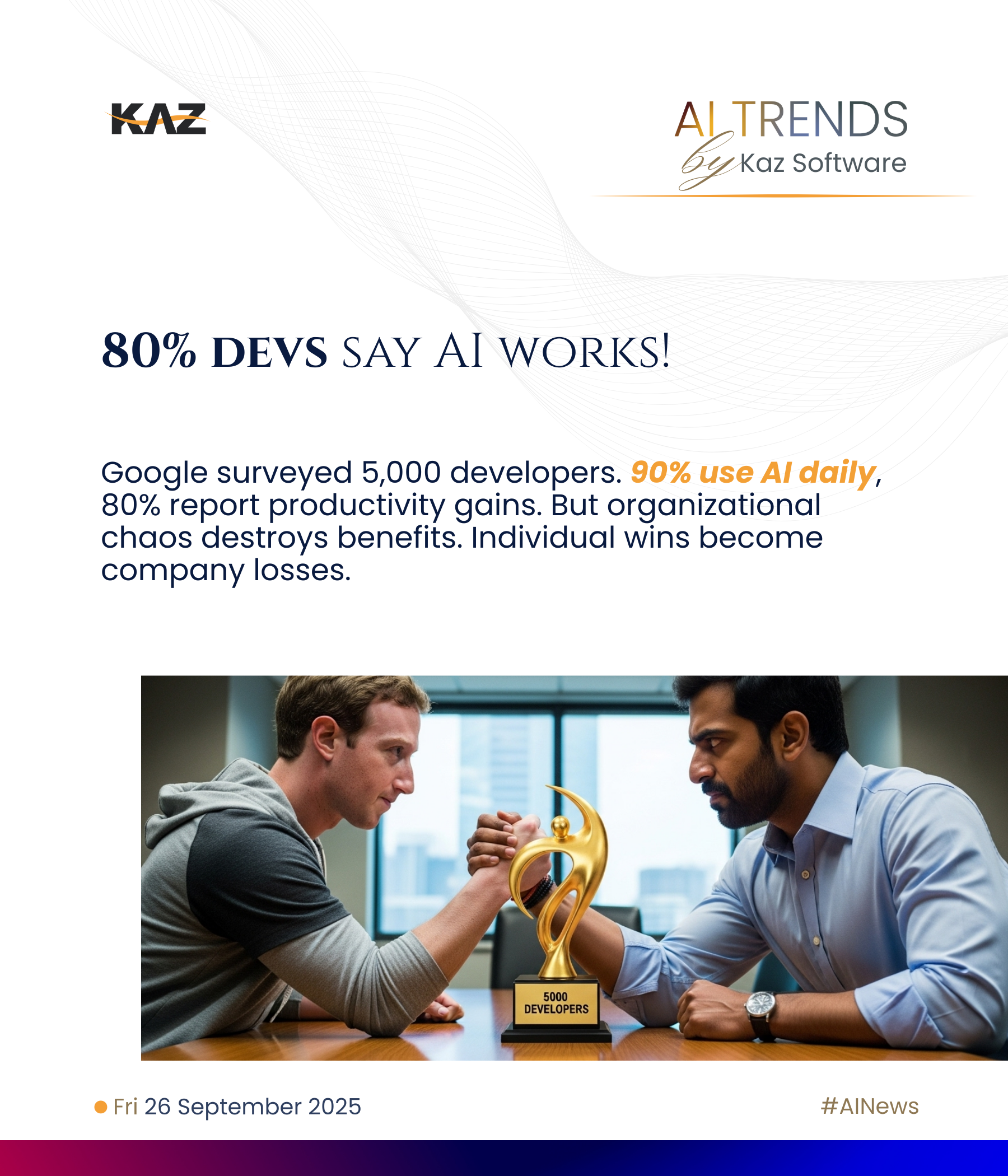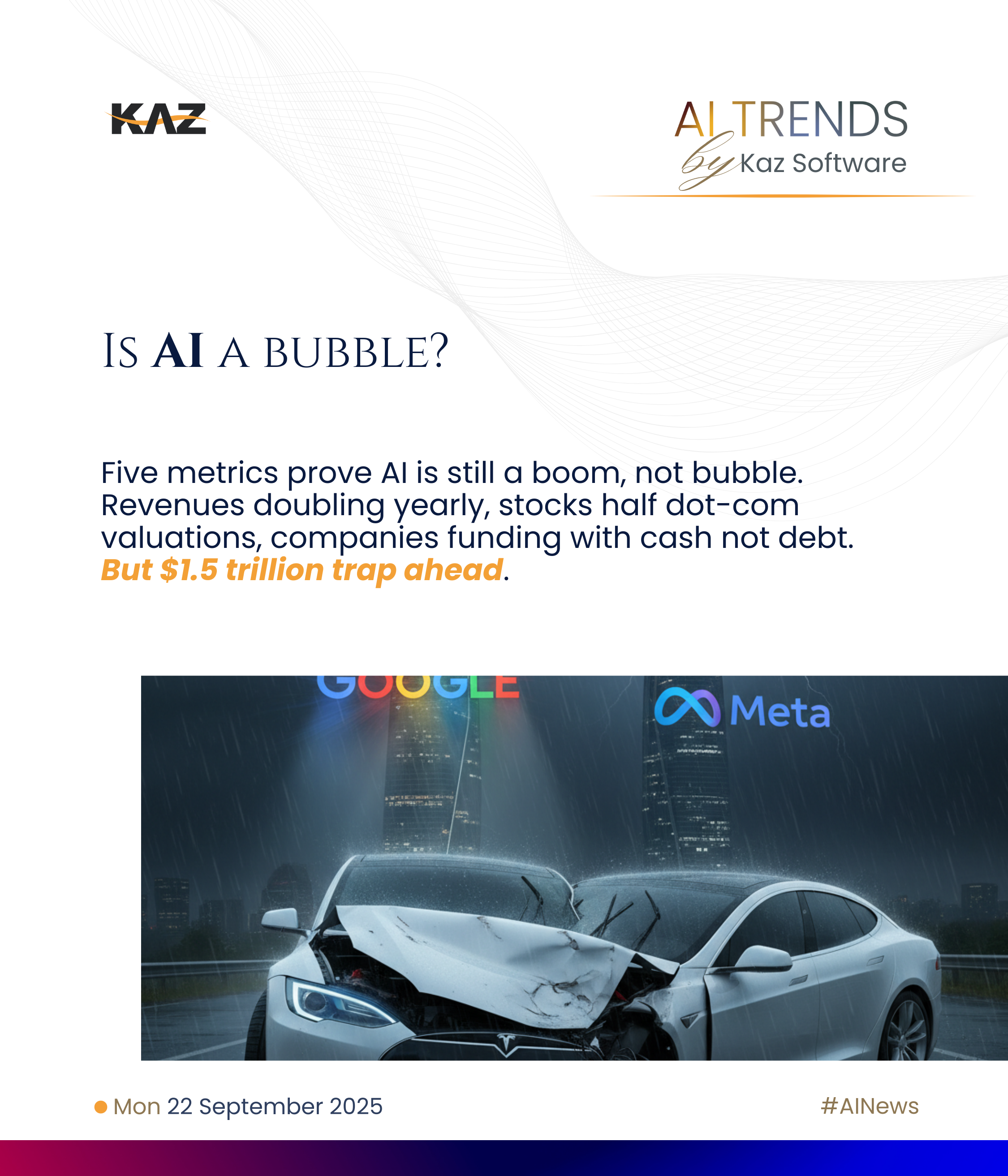OpenAI's Dev Day dropped two nuclear bombs on the startup ecosystem: Agent Kit, a visual agent builder that directly competes with companies like Zapier and Lindy, and Apps SDK, which lets ChatGPT absorb functionality from Canva, Zillow, Coursera, and more. The 800 million weekly ChatGPT users and 4 million developers now have tools that could make entire categories of startups obsolete overnight.
Sam Altman announced the updates in four categories, but two dominated: Agent Kit for building multi-agent workflows visually, and Apps that embed native applications directly into ChatGPT with deep contextual integration. They demoed building and shipping an agent in 8 minutes live on stage, while Apps showed Coursera videos you could pause to ask ChatGPT for explanations, with the AI having full context of what you're watching.
Did OpenAI just murder the agent startup ecosystem?
The moment rumors of Agent Kit leaked, startup founders started sweating. Lindy, n8n, and especially Zapier faced an existential question: how do you compete when OpenAI has 800 million weekly users and infinite resources? The visual canvas for creating multi-agent workflows, complete with native eval platform, automated prompt optimization, and connection to data sources via OpenAI's connectors platform, looks exactly like what these startups have been building for years.
Lindy's founder struck a defiant tone, posting "Welcome to the club OpenAI" with a note saying "Welcome to the most exciting category in AI and congratulations on your first foray into true AI employees." Zapier got more specific about their supposed moat, tweeting that Agent Builder "ships with only a few native integrations and most businesses run on hundreds of tools." Their argument centers on their ecosystem of 8,000 apps and 30,000 actions providing something OpenAI can't match—at least not immediately.
The brutal reality is that going against something OpenAI perceives as core platform functionality is a nightmare scenario for any startup. OpenAI built Agent Kit on the Model Context Protocol (MCP) and seems willing to reach outside their ecosystem to become the central hub where everything happens. They demonstrated the power asymmetry by building and deploying a functional agent in 8 minutes during the keynote—something that would take hours or days on competing platforms.
But these startups aren't entirely wrong about having defensive positions. The inherent limitation of any foundation model company's agent solution is lock-in to their models. Enterprises increasingly demand model flexibility, wanting to switch between different models for different use cases, not just as models improve but for cost optimization and specialized tasks. Any company building on OpenAI's Agent Kit is permanently wedded to OpenAI's models, pricing, and platform decisions.
The current visual workflow design that Zapier, Lindy, and n8n pioneered—and OpenAI now copies—remains intimidating for non-technical users despite marketing claims. Ethan Mollik's early impressions suggest Agent Kit "may still be too technical and single-player to be a true replacement for the dream of GPTs where anyone might easily share prompts and use cases with teams." The demo itself involved significant coding, revealing Agent Kit targets developers building agents, not general consumers creating their own.
There's a possibility OpenAI normalizing this interface actually expands the market for all players. If OpenAI makes visual agent building mainstream, the overall pie grows even if OpenAI takes the biggest slice.
Apps turn ChatGPT into a context black hole
Apps aren't just GPTs 2.0, despite surface similarities. The Apps SDK enables something fundamentally different: applications that ChatGPT can interrogate and interact with while maintaining full context of what you're doing. This isn't Canva inside ChatGPT—it's ChatGPT becoming your co-pilot for every application you use.
The Coursera demo revealed the game-changing potential. Users can pause educational videos to ask ChatGPT "can you explain more about what they're saying right now?" and get detailed explanations because ChatGPT has full context of the video content. The Zillow integration lets you ask about nearby dog parks, school districts, or commute times—information Zillow doesn't provide but ChatGPT can research while you browse listings.
Launch partners include Canva, Booking.com, Expedia, Figma, and Spotify, with Khan Academy, Instacart, Uber, Thumbtack, and TripAdvisor coming soon. Apps display inline, render anything possible on the web, support picture-in-picture, and can expand to fullscreen. The SDK's "talking to apps" feature gives ChatGPT awareness of your in-app experience, creating unprecedented contextual integration.
Swyx observed: "This isn't the ChatGPT you grew up with. It's Canva inside ChatGPT." But the Canva demo actually exposed limitations—nobody serious about business will design logos or pitch decks entirely within ChatGPT when Canva's full toolset exists. The convenience doesn't justify losing professional features.
The real power emerges in educational and research contexts. Once you've used Coursera with ChatGPT as your personal tutor providing real-time explanations, returning to passive video consumption feels primitive. Similarly, house hunting with an AI assistant that researches every property's context while you browse transforms a tedious process into intelligent exploration.
This creates a context black hole where OpenAI sucks in all user interaction data and context, building an insurmountable competitive advantage. Every app integration strengthens ChatGPT's position as the universal assistant layer. Apps become dependent on ChatGPT for enhanced functionality, while ChatGPT becomes irreplaceable for users accustomed to AI-augmented experiences.
Why developers care more about boring API updates
While Agent Kit and Apps grabbed headlines, developers at Dev Day were most excited about mundane API updates. GPT-5 Pro and Sora 2 arriving in the API, despite GPT-5 Pro costing 12x more than regular GPT-5, unlocked use cases previously impossible. Matt Schumer noted: "These models are both massively better than what developers had access to just a day ago. We're going to see some very interesting effects."
The confirmation of Sora 2 Pro in the API suggests the consumer app deliberately limits access to the full model—developers will get capabilities regular users can't touch. Additional updates included GPT Realtime Mini (70% cheaper than the standard voice model) and GPT Image 1 Mini (80% cheaper), enabling cost-effective scaling for production applications.
Dan Shipper captured the vibe shift: "It feels less exciting for developers and more for developer-adjacent roles. You should be hyped if you're doing AI ops in a company, but if you're a hardcore AI engineer, it's a bit underwhelming." Even Codex updates, despite the platform processing 40 trillion tokens since launch, felt "pretty incremental" to daily users.
This represents a fundamental transition from innovation to integration. OpenAI isn't trying to wow with parlor tricks anymore—they're building infrastructure for the millions already dependent on their tools. The updates seem boring because they're practical: better pricing, improved reliability, expanded access. These aren't demo features; they're production necessities.
Alli Miller, reporting from the room, ranked developer excitement "scientifically" by energy, phone usage, applause volume, and whispered conversations. The order: agents first, Codex second, apps third. But the real excitement came from API access to premium models, suggesting developers care more about capability improvements than flashy new interfaces.
The phase shift is clear: we've moved from "look what AI can do" to "make AI actually work." These incremental improvements unlock more real value than any splashy demo. OpenAI knows their moat isn't just technology—it's becoming the infrastructure layer everyone depends on, one boring update at a time.
























